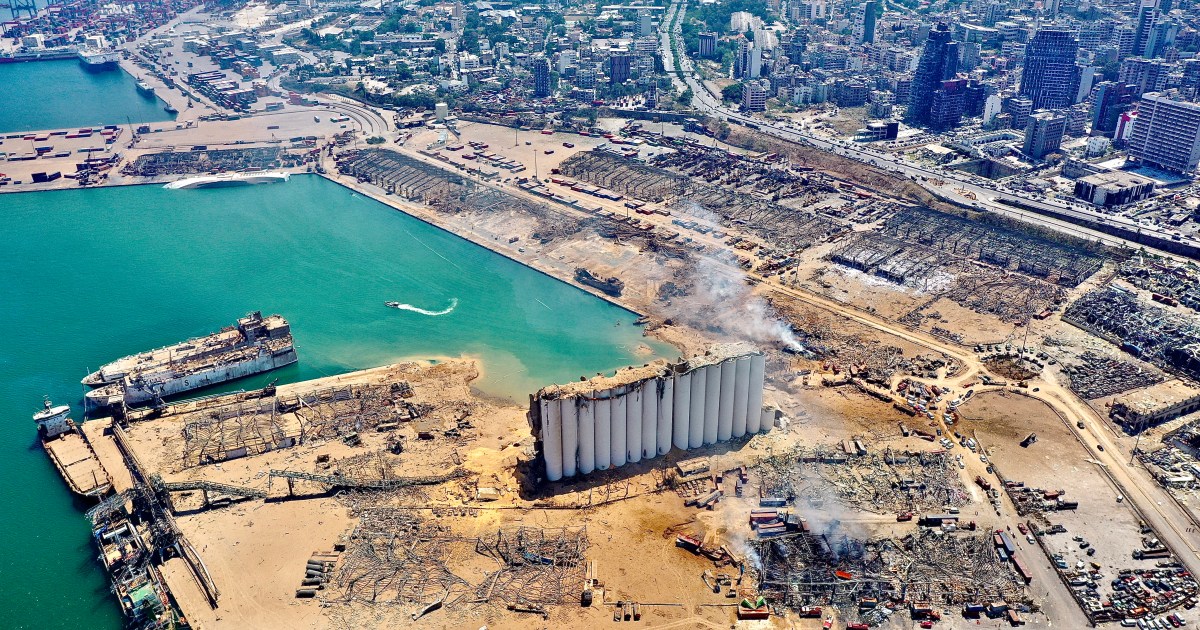The Lebanese newspaper Al-Akhbar quoted judicial sources as saying that ammonium nitrate was not seized by a decision of the Lebanese judiciary.
The sources add - according to the newspaper - that the Ministry of Works asked to float the ship (i.e. pulling it from the water) for fear of sinking, revealing that the judicial decision issued authorized the flotation of the ship, and transporting the goods from them and storing them in a suitable place determined by the Lebanese Customs Administration, but did not say that the goods were seized or Justified.
Circles close to Judge Jad Al-Maalouf - the judge of urgent matters, who were contacted by the Customs Department more than once to take his opinion on the matter of storing the material in the port - transmit that although the books of the Customs Administration were not originally received, he was writing them down and sending them to the Cases Authority of the Ministry of Justice, which was not answered Only once, with re-export approval, on 20 July 2015.
The judge decided to inform the maritime agent of the permissibility of re-exporting the goods and instructing him to show the identity of the ship owners and charterers and how to contact them, knowing that Article 13 of the Hamburg Treaty permits the destruction of the goods and not only the transfer of their ownership in the event that they are dangerous, and without paying any compensation to the owner.
The Lebanese army discovered samples of these materials in 2015 and confirmed that they are highly sensitive destructive materials. The newspaper described allowing these materials to be kept for 7 years "as if someone keeps a time bomb in his home, without knowing when it will explode, knowing the damage caused by it."
The State Security Agency also prepared a report in January 2019 in which it spoke of a real danger arising from these articles, and this report was submitted to the judiciary, the government and the agencies concerned, but the materials remained stacked.
Among the recommendations was a request to close a gap in ward 12 to prevent theft of ammonium nitrate.
Indeed, according to the State Security Report, and based on the judiciary’s indication, the port administration was informed of the maintenance, and blacksmiths attended to bridge the gap and weld the door. After completing their work, the fire, which lasted about half an hour, was ignited before the big explosion occurred, as the Lebanese newspaper concluded.
The army and civil defense continue to search in the sea for the missing as a result of the huge explosion that shook the port of the Lebanese capital, leaving behind at an unlimited number of dead 137 people, 5 thousand wounded and 300 thousand people among the displaced.

